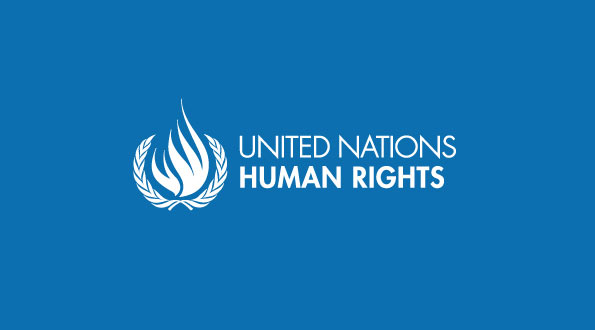U.N. official says some Sri Lankan laws discriminately applied

A United Nation expert said on Friday some Sri Lankan laws are “frequently applied” in a discriminatory manner and urged the government to address the root causes of public protests by treating everyone equally.
President Maithripala Sirisena’s government during its 2015 election campaign promised to ensure freedom of assembly, which was strictly limited under his predecessor.
Clement Nyaletsossi Voule, who reports to the U.N. Human Rights Council on the right to free assembly and association, said after an eight-day official visit that some laws had been used to jeopardize the rights of free assembly and association. These include the penal code, International Covenant on Civil and Political Rights (ICCPR) Act, and Prevention of Terrorism Act, he said.
“It has been brought to my attention that these laws are frequently applied in a discriminatory manner against those people organizing around specific issues such as disappearances, land rights, livelihood and access to resources, and development projects,” he told a media conference at the U.N. office in Colombo.
Sri Lanka is in a state of emergency after more than 250 people were killed in Easter Sunday bombings. Since then some people have been arrested on suspicions that they were involved.
“It is important that the country’s political leaders do not dismiss people’s desire for freedom, rule of law and democracy and do not undermine the progress that has been hard fought for, particularly in light of the upcoming elections,” Voule said.
The Indian Ocean island will hold presidential polls later this year and parliamentary elections next year.
Civil society organizations have opposed proposed new laws to regulate non-government organizations and the creation of a new counter terrorism act, which rights groups see as a move to clamp down civil society activities and the right to peaceful assembly.
Voule also expressed concern over the growing prevalence of hate speech in the country, which has increased sharply after the April attacks.
(Reuters)

Latest Headlines in Sri Lanka
- Batalanda commission report tabled in Sri Lankan Parliament March 14, 2025
- Female Grama Niladharis withdraw from night duty over security concerns March 14, 2025
- Sri Lanka ranked as the best country for settling down March 14, 2025
- UN pledges support for Sri Lanka’s industrial and SME development March 13, 2025
- Former Boossa Prison Superintendent shot dead in Akmeemana March 13, 2025



Just another UN official holidaying at UN expense.
Has he got any data to support his accusations?
If he has data, why was it not communicated regularly to GOSL through emails?
Why should he wait to throw unsupported accusations till he arrives in the island for a luxury holiday?
The guy was gonna interview the CJ and perhaps was hoping to instruct the CJ on to do his job.
Fortunately, Thanks to Mahinda Rajapaksa, Leader of the Opposition, for having raised the matter in Parliament and eventually the lousy Yahapalana acted to cancel the interview.
As mentioned before, Sri Lanka has two options regarding UN:
either give funding for silence as US, or ignore completely!
Bias and prejudice should not be respected with a listening ear!
this guy ought to get his figures right to give some credibility to his opinion on as to how they legal system operates. His opinion is tantamount to heresy something that belongs to the realm of witchcraft! For reuters publish these lies is no second to yarns that US president spins and on more than one occasion Trum has accuse reuters of publishing fake news.
getting back to facts the number killed by islamist terrorists was 350 and not 250 that led to the declaration of the emergency and is designed to arrest and detain suspected fugitives and the security and the arrest and the detention is discretionary and that is the only way security can be enforced. I dont know how this nut got about if at all he got about at all most likely he in all probability baited for information from the balcony of the ***** hotel that he was holed up during his short stay herein SL.
Agree 100% with you, Sama.
This guy came to SL on a UN sponsored holiday and is speaking through the orifice in his ample bottom.
He toured many Cities in SL; hope the local lassies providing services in Tourist Hotels enjoyed his extra-sized schlong.
This guy should go back to his country, Togo, and fight for democracy there.
Togo has been ruled by Dictators since 1991 and now the son is power having succeeded his dad.
Togo is almost the poorest nation in the World.
Mr Clement Nyaletsossi Voule can perform a better role for the masses in Togo than lecturing stupid and ultra-corrupt leaders in Sri Lanka.
As Nigel says, hope our lovely tourist hostesses enjoyed his oversized schlong.
Wish I had the opportunity too.